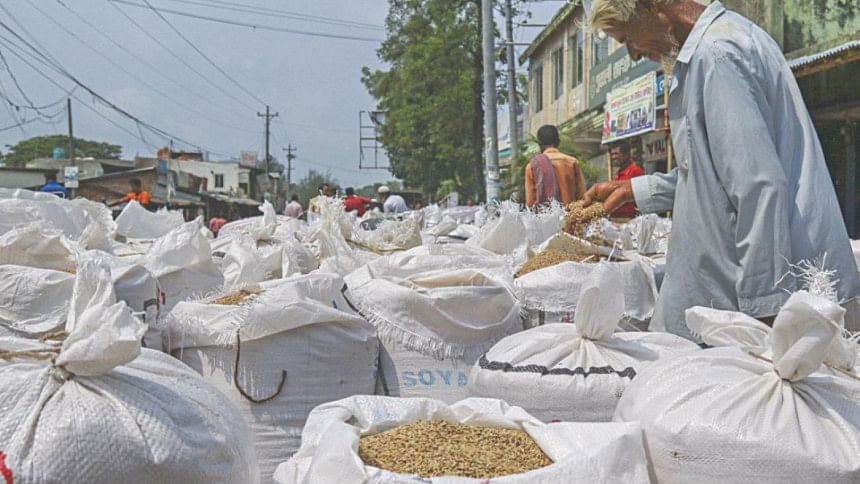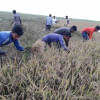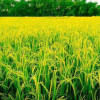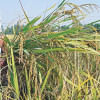Farmers lose, millers gain

Under the ongoing food grain procurement programme, the government is buying only 1.5 lakh tonnes of paddy from farmers, which makes up less than one percent of the total estimated production of around 1.96 crore tonnes this boro season.
Under the same scheme, the government is purchasing 11.5 lakh tonnes of rice (equivalent to about 20 lakh tonnes of paddy) from millers.
Although the primary goal of the procurement programme is to give “price support” to farmers, it is not benefitting them much.
On one hand, millers are buying paddy in the open market at low prices and selling rice to the government at higher rates. On the other, the government is buying almost 13 times more (in terms of paddy) from millers than from farmers.
This means millers are gaining more both ways.
This is the case when farmers are facing losses due to low selling prices in the open market. Moreover, the amount of government procurement from farmers is paltry compared to the amount it would buy from millers.
The procurement started on April 25 and will continue till August 31.
According to government estimates, a farmer had to spend Tk 24,000 to grow one tonne of paddy. But millers are buying the same amount for Tk 15,000, inflicting a Tk 9,000 loss on farmers per tonne. If the government procures directly from farmers (at Tk 26,000 a tonne), the farmers get Tk 2,000 in profit.
At the same time, under the procurement programme, the government pays millers at least Tk 21,600 for the rice produced from one tonne of paddy. In this case, the millers have to spend only Tk 15,750, including the husking cost of Tk 750 per tonne. This means, the millers garner about Tk 5,850 in profit every tonne.
In simple terms, while farmers make a profit of Tk 2,000 per tonne from government procurement, the same scheme gives Tk 5,850 of profit to millers.
Farmer Najir Uddin Sheikh of Mymensingh said, “Millers are buying paddy from us at a low price and selling it to the government at a high price. How is it helping us?”
Talking to The Daily Star, he said, “Please ask the government to buy paddy from us. There is no need to buy rice from millers. After procurement, the government should have the paddy husked by millers. Otherwise, this programme won’t help us.”
“Millers gain both in purchasing paddy and selling rice, and in the process, they eat up the share of farmers’ profit,” said Quazi Shahabuddin, former director general of the Bangladesh Institute of Development Studies (BIDS).
If rice is bought from millers, it would not benefit farmers, said Dr Shormindo Nilormi, an associate professor of economics at Jahangirnagar University. If there is a problem in buying paddy from farmers, the government should remove it, she added.
Sazzad Zahir Chandan, general secretary of Bangladesh Krishak Samity, said the procurement system is businessmen-friendly; farmers’ benefit is very nominal here.
About the procurement, The Daily Star talked to Zulfiquar Rahman, director of the Procurement Division of Directorate of Food.
When asked why the government does not buy paddy directly from farmers rather than procuring rice from millers, the official said the government does not have enough storage capacity for paddy because it takes more space than rice.
This correspondent then inquired how the government would husk the 1.5 lakh tonnes of paddy to be procured from farmers. “The paddy would be given to listed millers. Husking of each tonne will cost Tk 750-850,” the official replied.
“Initially we store the paddy at our warehouses and then send it to millers for husking. According to the Food Grain Procurement Policy, we cannot send the paddy directly to the millers and receive the rice, which would have solved the problem of low storage capacity. But, I’m not the authority to speak about policy decisions,” he said.
Food Minister Sadhan Chandra Majumder said, “Buying of rice from millers has been going on for a long time. We are doing the same this year.”
The decision on boro paddy procurement was taken in presence of several ministers two months ago; the price started dropping only recently, he added.
“Food grain procurement has little impact on the paddy market, and it was not in focus in the previous years. This year is a bit different because both aman and boro seasons saw bumper yields. Also, there is a carryover of 40 lakh tonnes of rice imported in 2017. All of these contributed to a significant fall in the paddy price.”
The minister said there were years when the government went for procurement but did not get a sufficient number of paddy sellers. “However, if necessary, we will buy more paddy this year after the end of the current procurement term.”
The minister also said one of the reasons the government cannot buy more paddy from farmers is the moisture content of their paddy exceeds the maximum recommended level of 14 percent.
Talking to The Daily Star, Food Secretary Shahabuddin Ahmed acknowledged, “It would be helpful for farmers if we could buy all the food grain from them.”
He said the government is working on it and planning to establish 200 dryers across the country where farmers could dry the paddy up to the required level before sale.
HOW GOVT BUYS
Firozul Islam, upazila nirbahi officer of Dinajpur sadar, said, “We buy paddy from the farmers following a list, supplied by the agriculture department.”
“During a recent procurement, we found most of the paddy farmers put up for sale had the required level of moisture,” he added.
“We prepare the list of farmers, who want to sell their paddy to our field level officials,” said Aklimuzzaman, upazila agriculture officer of Dinajpur sadar.
According to the food directorate, Bangladesh has a storage capacity of 20.23 lakh tonnes of rice.
Till May 19, the government has bought 72,828 tonnes of rice from millers and 685 tonnes of paddy from farmers across the country, according to the food ministry.

 For all latest news, follow The Daily Star's Google News channel.
For all latest news, follow The Daily Star's Google News channel. 







Comments